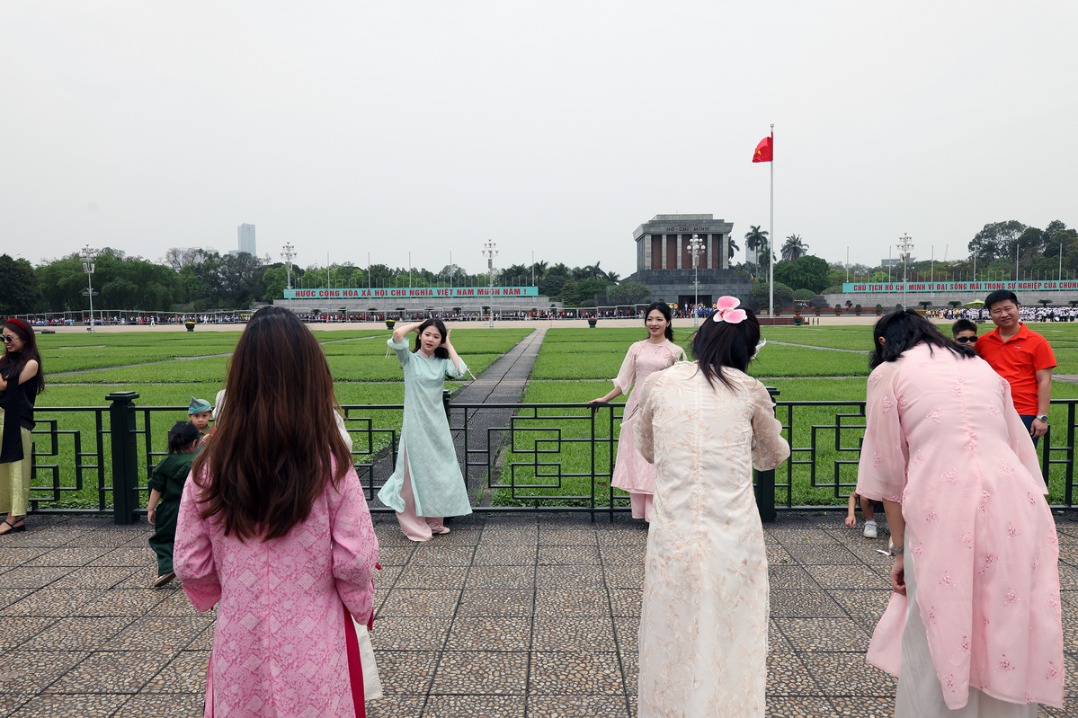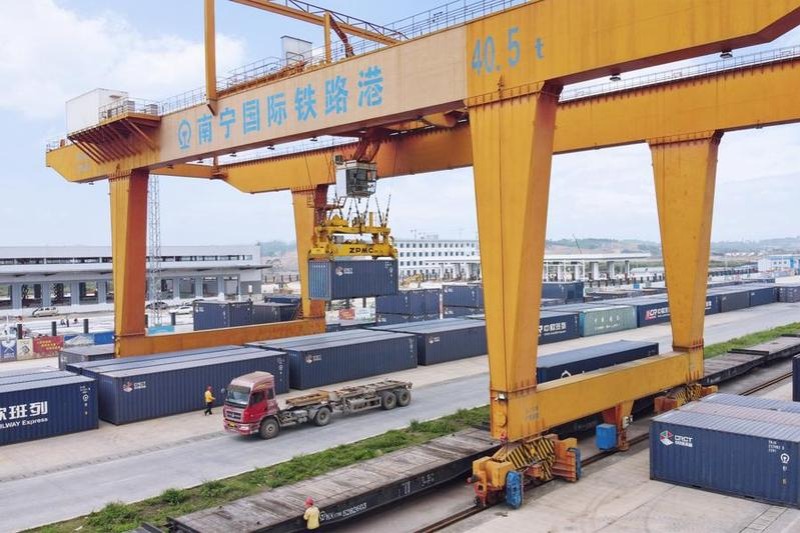Will cooling realty sector warm up in 2025?


In the year of 2024, China's real estate sector has been undergoing a challenging adjustment period. Despite unprecedented policy easing measures slowing the decline in market transactions and housing prices, the overall market performance remains subdued. Between January and October, housing prices across 70 major cities experienced widening year-on-year declines, which only began narrowing in November. Similarly, sales by the top 100 real estate enterprises declined by 32.9 percent year-on-year from January to November. Despite slight improvements, sales in November fell 18.62 percent month-on-month, underscoring the persistent weakness in demand.
Some encouraging developments have emerged in late 2024, driven by a series of supportive policies implemented since September. The key policies include granting local governments the flexibility to adjust or eliminate restrictions on purchases, sales, pricing, and housing classifications; further lowering mortgage interest rates; increasing investment in urban village redevelopment and hazardous housing renovation projects; and expanding credit support for select "white-listed" developers.
In response, cities such as Beijing, Shanghai, Guangzhou and Shenzhen have led the relaxation of purchase and lending restrictions, which upgraded housing demand. By November, first-tier cities saw a modest uptick in housing prices, particularly in the secondhand market.
In December, the Central Economic Work Conference underscored the importance of stabilizing the real estate market. Key priorities included accelerating urban village redevelopment and unlocking housing demand. To achieve these goals and ensure market stability, the following measures were recommended:
Subsidize urban village renovation
For urban village renovation projects, offering cash compensation or housing vouchers to relocate residents is a preferable option. This approach can streamline relocation timelines and minimize transition costs, empowering residents to acquire homes directly from the commercial market. Such initiatives can help stabilize housing markets by expediting inventory clearance, especially in areas with lower demand.
Housing vouchers offer additional benefits by stimulating market activity. Time-sensitive incentives tied to voucher use, such as purchase bonuses, can encourage faster buying decisions and accelerate redevelopment progress, ultimately boosting market confidence.
Currently, monetized resettlement and housing voucher policies predominantly apply to major cities. Looking ahead, these initiatives could be extended to encompass a broader range of medium-sized and smaller cities, enhancing their reach and impact across various urban settings.
Optimize existing stock
It's also important to develop a dynamic monitoring system to assess housing supply, population inflows, and vacancy rates across cities. Tailor new residential land supply plans to regional demand, particularly in areas with oversupply, to avoid resource wastage and escalating inventory pressures.
In cities with high housing stock or vacancy rates, the authorities should consider gradually reducing new residential land allocations while directing resources toward urban renewal and repurposing existing land. Additionally, utilizing special-purpose bonds can aid local governments in reclaiming undeveloped or sold land, fostering market confidence by indicating a near-term balance between supply and demand.
To support local government finances, debt restructuring plans should be refined based on regional housing dynamics to address fiscal gaps resulting from reduced land sales revenue. Existing initiatives, such as using special-purpose bonds to acquire idle land and the 300 billion yuan ($41.18 billion) housing loan program for unsold properties, lay a strong foundation. Further efforts should channel bond proceeds into acquiring idle land and unsold housing for public or rental housing, enhancing the efficiency of land and housing stock management.
Unlock housing demand
Policies should be tailored to relax restrictions in cities with strong population inflows, particularly for suburban areas and large-unit housing. By reducing down payment requirements, particularly benefiting first-time buyers and those seeking to upgrade to larger homes, and by moderately lowering mortgage rates, homeownership can become more attainable for a wider population.
If tax policies can be revised for secondhand housing by extending tax exemption periods and lowering deed tax rates, they can reduce transaction costs for buyers, energize the market, and facilitate smoother property transitions.
What's more, targeted policies can be introduced to address the housing needs of families with two or three children, including reduced down payment rates, increased loan limits, and dedicated purchase subsidies. Those families should also be prioritized for public or rental housing programs to ensure access to suitable living spaces that meet their unique needs.
Improve housing quality and affordability
In China's housing market, promoting high-quality housing construction to enhance market standards is equally crucial. Local governments can support green building initiatives by mandating the use of energy-efficient technologies and providing tax incentives or subsidies to developers who meet environmental benchmarks.
Urban renewal projects should prioritize the development of vibrant public spaces by expanding parks, green areas, and community facilities. Simultaneously, there should be a focus on constructing safe, comfortable, and environmentally friendly "smart homes" to enhance the overall living experience.
Stabilizing China's real estate market necessitates a comprehensive approach that tackles both supply and demand dynamics. By optimizing urban village redevelopment, regulating new supply, stimulating stagnant demand, and enhancing housing quality and affordability, policymakers can instill confidence and establish a foundation for enduring market stability. If implemented effectively, these strategies will not only rebalance the market but also foster the sustainable growth of China's real estate sector.
Chen Jie is a professor at the School of International and Public Affairs, as well as China Institute of Urban Governance, Shanghai Jiao Tong University. Sun Hongliang is a PhD student of the same school. The views don't necessarily represent those of China Daily.
If you have a specific expertise, or would like to share your thought about our stories, then send us your writings at opinion@chinadaily.com.cn, and comment@chinadaily.com.cn.

































